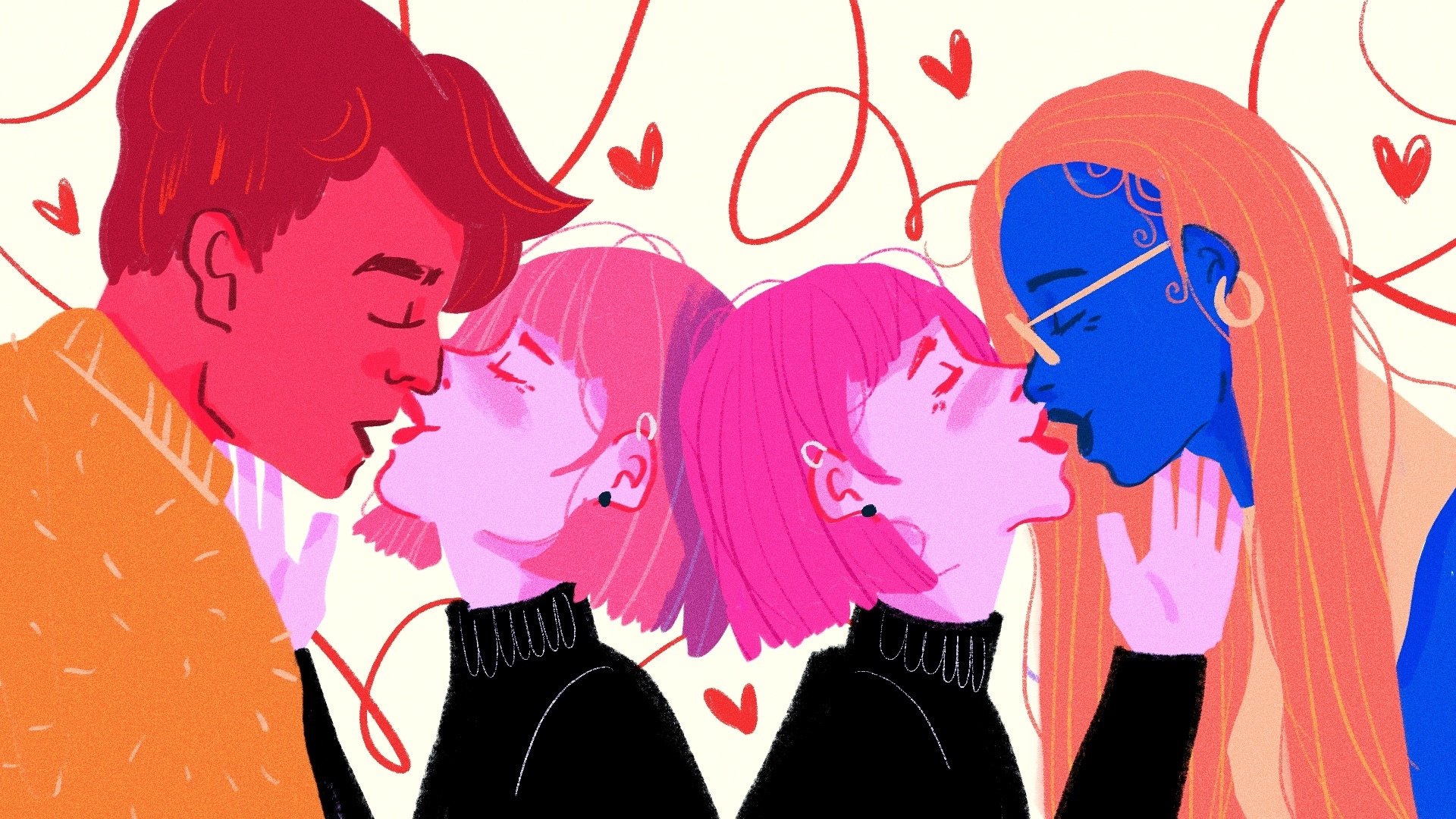Millennials prioritize sex more than Gen Z does, survey says

Discussions about generational differences can get tiring, but it’s no secret that millennials and Gen Z are distinct. While millennials came of age with the internet, Gen Z has had it from the start — and it’s impacted how they live, let alone how they date.
Eharmony’s Dating Diaries report, a survey of over 2,000 people, shows the variation between how the two generations think about sex and dating. For one thing, millennials prioritize sex in relationships more than those in Gen Z — but the latter is more sexually explorative.
Dating for millennials vs. Gen Z
A staggering 91 percent of millennials in relationships have sex at least once a week, compared to 78 percent of Gen Z, showing where their priorities lie.
Gen Z, meanwhile, is more likely to have unprotected sex (26 percent) compared to 16 percent of millennials. They’re also more flexible in the bedroom, with 46 percent using more than six positions so far this year compared to 40 percent of millennials.
“Gen Z tends to be more sexually free than millennials, who are taking a ‘slow burn’ approach to dating, and feel confident exploring their sexuality with fewer boundaries and limitations,” explains eharmony relationship expert Laurel House in the Dating Diaries press release.
Want more sex and dating stories in your inbox? Sign up for Mashable’s new weekly After Dark newsletter.
There are areas where the generations align, though. STI and HIV stigma is pervasive throughout generations, with 64 percent of all singles saying they wouldn’t date someone with an STI. On a more positive note, 65 percent have no issues dating someone seriously after having sex on the first date.
“While outdated trends like the ‘three date rule’ no longer apply, it’s important to set clear expectations before starting a sexual relationship,” House recommends. “If you’re someone who feels emotional attachment after having sex then maybe a slow burn relationship is the best approach for you. Be honest with yourself and your partner to avoid confusion and heartbreak.”
Before having sex, Gen Z does care most about emotional connection (25 percent) compared to sexual chemistry (19 percent) and feeling physically safe (18 percent). Compare that to millennials, where sexual chemistry is top (24 percent), followed by an emotional connection (23 percent), and potential for a longterm relationship (20 percent).
Social media loves and icks
Summer’s here, and most Gen Z singles — 53 percent — report being more likely to hook up with someone this season. Thirty-eight percent want to embrace situationships this summer, while 23 percent want the “relationship effect” (spending less time with family or friends due to your partner).
“As the weather heats up, so do the sex drives of single daters, leading to their attraction to summer love or ‘SumLuv,'” said House. “‘SumLuv’ flings can turn into ‘SumMore’ if your mindset shifts and both you and your partner want something more enduring and long term.”
Most of Gen Z, 57 percent, have met at least half of their “SumLuv”s or “SumMore”s on dating apps and social media. Watch out for icks, though. The most common social media turn-offs for the generation are bad taste in memes (42 percent), being an influencer (38 percent), using gifs regularly (32 percent), not having an active social media presence (31 percent), and sliding into DMs before meeting up IRL (30 percent).
While some young people are turned off by no social media presence, others yearn to keep their relationships offline: 25 percent of Gen Z singles want to wait a few months before sharing details on social media, while 21 percent want to wait until they’re in an exclusive relationship. Thirteen percent of Gen Z singles don’t want to share their relationship on social media at all.
Gen Z is also more likely to use social media to learn new things to try during sex (41 percent). Singles of all generations, however, are most likely to learn from their friends (39 percent), partners (37 percent), porn or erotica (34 percent), and social media (32 percent). Interestingly, millennials are more likely (23 percent) to trust social media for matters of the heart over friends, family, therapists, and other resources — compared to just 11 percent of Gen Z.
Digital natives are also getting tired of swiping: 48 percent of Gen Z singles report experiencing dating app fatigue. For those people, nearly half (49 percent) say the biggest contributor to the fatigue is not being able to tell who’s genuine and who’s not.
While millennials and Gen Z may go about it differently, it’s clear we’re all trying to figure out the whole “dating” thing together.

